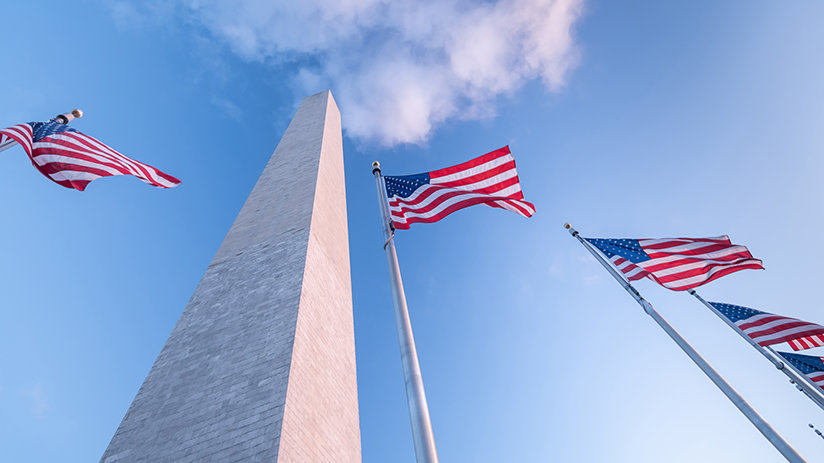
-
HOME
-
WHAT IS STANDOur Mission Our Values Our Help Contact
-
WHAT WE FIGHT FORReligious Freedom Religious Literacy Equality & Human Rights Inclusion & Respect Free Speech Responsible Journalism Corporate Accountability
-
RESOURCESExpert Studies Landmark Decisions White Papers FAQs David Miscavige Religious Freedom Resource Center Freedom of Religion & Human Rights Topic Index Priest-Penitent Privilege Islamophobia
-
HATE MONITORBiased Media Propagandists Hatemongers False Experts Hate Monitor Blog
-
NEWSROOMNews Media Watch Videos Blog
-
TAKE ACTIONCombat Hate & Discrimination Champion Freedom of Religion Demand Accountability
Religion in the Workplace: How Diversity Creates Better Cultures
There’s been a theme to many “wellness at work” articles lately: the idea of bringing your whole self to work. So what is your “whole self” and how exactly do you bring it?
“Wholeness means we bring all the elements of who we are to work—our passions and strengths, our side projects and relationships, our partners and kids,” writes one blogger.

It’s a relatively new concept. Until recently, the workaday world has operated much like a mullet: business in front, personal life in the back.
A recent Deloitte study found that most people hide aspects of their personal life at work, especially minority groups: black people (94%), women of color (91%), LGBT (91%) and women (80%). Even 45% of straight white men, the most “normal” group of all, hide aspects of who they really are.
The study found that these aspects fell into four categories:
1. Appearance: avoiding aspects of self-presentation—including grooming, attire, and mannerisms—identified with their group. For example, black women chemically straightening their hair because of racist attitudes or dress code policies on hair.
2. Affiliation: avoiding behaviors identified with their group. At a company event or happy hour, a Muslim person might decline a drink without mentioning the reason why, out of fear of judgment or prejudice.
3. Advocacy: avoiding engagement in activities on behalf of their group. If a co-worker asks a Catholic what they did over the weekend, the honest answer might be “I went to church on Sunday,” but they decide not to say anything because of stigma against being religious.
4. Association: avoiding contact with individuals in their group. For example, an LGBT person might avoid introducing their coworkers to their partner or LGBT friends for fear of outing their sexuality or gender identification in an unaccepting culture.
This soul-crushing pressure to conform to normalcy is bad for morale.
Why do so many people feel the need to hide their true selves? Most respondents said their leaders (61%) and the organization’s culture (59%) expected them to.
This soul-crushing pressure to conform to normalcy is bad for morale. Nearly half of respondents said that this expectation decreased their sense of opportunity and commitment to the organization.
Some companies have recognized that stifling the “whole self” is a waste of energy. A study by Boston Consulting Group found that companies that embrace diversity generate 19% more revenue over those that don’t. A diverse workforce creates a culture that is more receptive to new ideas, challenging outdated modes of thinking, and innovation.
For organizations that find themselves stuck in repressive patterns, new solutions are coming to the fore. Recently, a trio of religious freedom organizations partnered in launching an executive training program designed to help companies perform better by addressing religion at work.
Kristen Farrington, executive director of the Religious Freedom Center, explains: “Businesses thrive when they’re inclusive and their employees have diverse backgrounds and life experiences, but religious diversity is often undervalued. Our executive training prepares business leaders to navigate these issues so they can create religiously inclusive policies and workplaces where religious diversity is respected.”
I’ve worked at companies where I felt my religious beliefs wouldn’t be respected, and keeping that part of my life to myself was difficult. It felt like I could never completely relax or be who I am with my coworkers, and I was unhappy as a result. I know many religious people who feel the same way every day.

At my current job, things couldn’t be more different. We’re a tight-knit startup with a completely supportive environment where everyone feels safe to speak their mind and bring their whole self to work. My coworkers are Catholic, Jewish, and generally spiritual people. We often talk about life, the mind, emotions, and navigating our personal and professional goals together. I truly couldn’t ask for a better culture.
This dynamic didn’t appear out of thin air, though. We built it one day at a time. For me, that experience oddly began with my job interview.
A few years ago, having freshly transplanted myself to LA, I was job-searching all over the city. I showed up to an interview with the VP and CEO, two delightful and warm people whom I immediately liked.
I hesitated for a split second, wondering “Should I tell him?”
Making small talk, the CEO asked what brought me to L.A. At first, I said something vague like “a change of scenery and taking some self-improvement courses.”
That did not change the subject, as I’d hoped. He said “Cool, I’m really interested in self-improvement too! What program are you doing?”
I hesitated for a split second, wondering “Should I tell him?” I was so tired of feeling like I couldn’t be honest about myself. Some internal switch flipped, and I decided enough was enough.
“Well actually, I’m a Scientologist, so I’m doing courses in …that.” I trailed off, half expecting blank stares.
He smiled and said that was great. The rest of the interview was friendly and warm, with no apparent damage having been made by my confession. And shortly after, I was hired.
After I’d been working there for a few days, the CEO called me into his office and said “You know, I really admired the way you were honest with me about your beliefs. You took a risk, and that takes guts. We need people who aren’t afraid to take risks around here.”
In my experience, great culture starts with great leaders. At that time, I was only the second employee in the company, and the inclusivity I felt on day one continued to grow as we hired more and more people. The other day, my coworker said this is the best company he’s ever worked for, and that he’d never felt so supported in his personal growth before.
But my boss was right: creating a great culture also requires taking risks. Bringing your whole self to work might feel intimidating, but cultures only adjust when we make them do so. Daring to be yourself, even if some parts of that aren’t mainstream, is liberating and so, so worth it.









